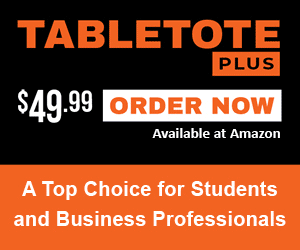
Are you looking for a fulfilling career that’s challenging and gives you the opportunity to impact the lives of younger generations? Look no further than a college teaching career.
College teaching is more than just a profession. It’s a calling that combines intellectual engagement, mentorship, and the opportunity to shape the next generation of thinkers and leaders.
As a career, it offers immense professional rewards, like a chance to carve out a solid reputation in the education industry and unique challenges that help you grow personally, like building relationships with a diverse group of people.
If you’re passionate about learning and sharing knowledge, becoming a college professor can be a deeply fulfilling path that honors these passions.
Let’s get into the steps, considerations, and most important trends for those interested in pursuing this meaningful vocation.
The Path To Becoming a College Professor
The road to becoming a college professor typically begins with a strong educational foundation. You need a high school diploma and an undergraduate degree in teaching or the field you want to teach in.
Aside from that, most college professors hold advanced degrees in their chosen fields. While a master’s degree might suffice for positions at community colleges or adjunct roles, tenure-track positions at universities often require a doctoral degree (Ph.D. or equivalent).
Building expertise in a specific area is crucial. This includes academic coursework and contributing to the field through original research, peer-reviewed journal publications, and conference presentations. Specialized certifications or relevant industry experience can further enhance your qualifications, particularly in applied disciplines like business, technology, or healthcare.
Beyond academic credentials, developing a robust professional profile is essential. Aspiring educators should aim to:
- Engage in research: Publishing articles, writing books, or conducting groundbreaking studies can establish credibility and expertise in your chosen teaching field.
- Gain teaching experience: Graduate teaching assistantships, adjunct positions, or tutoring roles offer valuable exposure to classroom dynamics.
- Build a professional network: Collaborating with peers, attending academic conferences, and joining professional organizations can open doors to teaching opportunities you otherwise wouldn’t have come across.
While the journey to becoming a college professor is intellectually rewarding and internally fulfilling, it’s not without challenges.
The competition for tenure-track positions is fierce, and many individuals begin their careers in adjunct or temporary roles. Balancing research, teaching, and administrative responsibilities requires strong time management and adaptability.
However, the challenges are worth it. Professors have the unique privilege of mentoring students, influencing academic discourse, and contributing to the advancement of knowledge.
For many, the intrinsic satisfaction of inspiring others far outweighs the challenges. There’s nothing like receiving that thank you letter or speech from students you’ve helped shape their life path.
Trends in College Teaching Careers
The landscape of higher education is evolving, shaped by technological advances, societal changes, and shifting student expectations. You should be aware of the following trends to position yourself for success and continue to evolve as an educator:
Online Teaching and Hybrid Models
The COVID-19 pandemic accelerated the adoption of online education, and hybrid teaching models are here to stay. Proficiency in digital tools and platforms is increasingly valuable, and educators must adapt their teaching methods to engage students in virtual and in-person settings.
Interdisciplinary Studies
Higher education institutions are embracing interdisciplinary approaches, encouraging collaboration across traditional academic boundaries. Professors with expertise in multiple fields or the ability to connect diverse disciplines are in high demand.
Diversity and Inclusion Initiatives
Colleges prioritize diversity, equity, and inclusion (DEI) in their hiring practices and curricula. Educators who actively support DEI efforts and create inclusive learning environments will find themselves better positioned in this evolving landscape.
Better Working Conditions for Teachers
It’s no secret that teaching is one of the most demanding careers to take on, from managing entire classrooms to the emotional investment in students’ lives to being on your feet all day. Because of this, teachers have been leaving the profession in droves, burnt out and exhausted.
Fortunately, there’s been a heavy focus on bettering working conditions for teachers to improve teacher retention rates. Leaders in education are fighting for better compensation, larger budgets for expenses, and growth opportunities that provide a better living and more meaningful work.
Tips for Aspiring College Educators
We want to make sure you’re truly ready to be a college educator. So, here are a few more tips to make your transition smooth:
Networking and Mentorship
Building connections within academia is critical for career advancement. Aspiring educators should:
- Attend academic conferences: These events provide opportunities to present research, meet potential collaborators, and stay informed about developments in the field.
- Seek mentorship: Experienced professors can offer invaluable guidance on navigating academic careers, from publishing to securing tenure.
- Join professional organizations: Membership in academic societies can provide access to resources, job postings, and a community of like-minded individuals.
Adapting To Hiring Trends
The hiring landscape in education is changing, with greater emphasis on soft skills such as communication, empathy, and adaptability. Aspiring educators should demonstrate these qualities alongside their academic achievements.
Understanding current hiring trends, like the desire for a safe workplace, the use of A.I. in hiring, and the push for remote/hybrid schedules, helps you stand out in the competitive job market because you can use them to your advantage.
Lifelong Learning
The best educators are perpetual learners. Staying current with advancements in your field, exploring new pedagogical methods, and being open to feedback are essential for long-term success. Professional development opportunities, such as workshops and online courses, can help you refine your skills and remain relevant.
Conclusion
Becoming a college professor is a journey that demands dedication, adaptability, and passion. The rewards of this career — inspiring students, advancing knowledge, and contributing to society — make it a worthwhile pursuit for those with a love for teaching and learning. Prepare thoroughly, embrace the challenges, and stay attuned to the evolving landscape of higher education to build a meaningful career that leaves a lasting impact.
SEE ALSO: Exploring Career Paths: Industry Insights for College Students
















